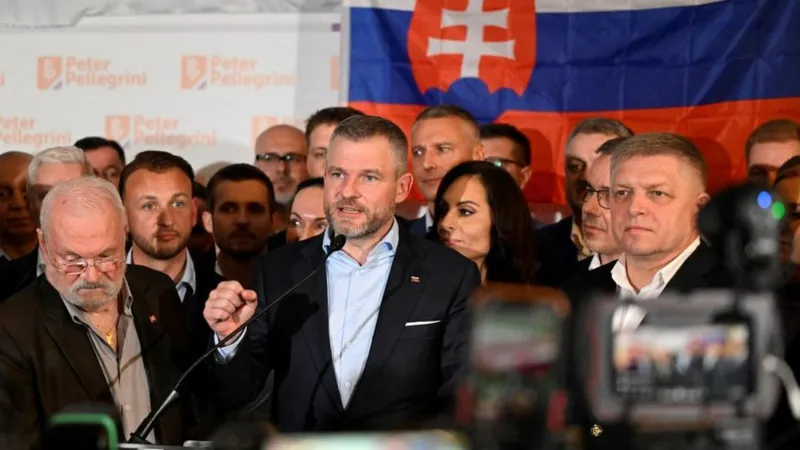Russia-Sympathetic Populist Peter Pellegrini Wins Slovak Presidency
Peter Pellegrini, a populist figure, has secured the presidency of Slovakia, succeeding the liberal Zuzana Caputova. His victory over the pro-Western Ivan Korčok, a former diplomat, signals a significant political shift in the country. Pellegrini, a former prime minister and ally of Prime Minister Robert Fico, has espoused a dovish stance towards Russia, aligning with Fico’s policies.
With Fico and his allies consolidating control over Slovakia’s parliamentary and governmental apparatus, Pellegrini’s election marks a further concentration of power within their camp. This shift has implications for Slovakia’s foreign policy, particularly concerning its relationship with Ukraine. Under Fico’s leadership, Slovakia had retreated from its staunch support for Ukraine, halting military aid and advocating for peace talks with Russia. Pellegrini’s campaign rhetoric echoed these sentiments, portraying his opponent as a warmonger and pledging to prioritize peace over military intervention.
The incoming presidency of Pellegrini raises concerns about Slovakia’s alignment with Western values and its commitment to upholding democratic principles. Critics argue that Pellegrini’s silence on Fico’s controversial policies, including the dismantling of Slovakia’s criminal justice system, indicates a lack of willingness to challenge the ruling party’s authoritarian tendencies. The abolition of the Special Prosecutor’s Office, which was investigating high-level corruption and the murder of journalist Jan Kuciak, underlines the erosion of institutional checks and balances under Fico’s government.
Furthermore, Pellegrini’s victory signifies a setback for the liberal opposition, which had rallied around Caputova’s anti-corruption platform. Caputova’s presidency symbolized a break from the political establishment and a commitment to transparency and accountability. However, with Pellegrini’s ascension to the presidency, there are concerns that Slovakia may regress on these fronts, with Fico potentially resuming his efforts to curb media freedom and consolidate state control.
The aftermath of Kuciak’s murder had prompted widespread outrage and led to calls for systemic reform. However, Pellegrini’s election suggests a possible reversal of these efforts, with Fico’s government emboldened to pursue its agenda without significant opposition. The opposition fears that Pellegrini’s presidency will embolden Fico to push through controversial measures, such as the proposed overhaul of the public broadcaster, which could further undermine democratic norms and freedom of expression in Slovakia.
As Slovakia navigates this political transition, the international community will be closely watching developments, particularly concerning the country’s foreign policy orientation and its commitment to upholding democratic values. Pellegrini’s presidency raises questions about Slovakia’s future trajectory and its adherence to European and transatlantic alliances in the face of growing authoritarian tendencies within its own government.



















